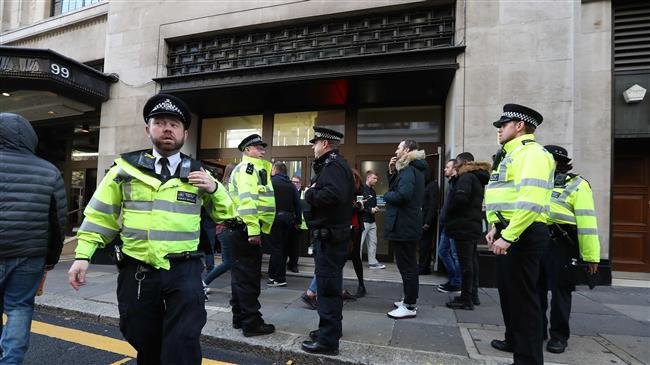
RNA - A London-based Saudi opponent was quoted by the BBC-Arabic on Tuesday night as saying that the UK police placed him under tight protection after being warned of a “life-threatening danger.”
The London police refused to comment on the incident.
The Saudi opponent, who was not named for security reasons, affirmed that he was placed under tight protection for all the day hour after UK police realized last week a danger threatening his life.
The Saudi opponent, who has been an asylum seeker in London for several years, was subjected to numerous threats and physical assaults.
He told the BBC-Arabic that the security threats were monitored by the British counter-terrorism unit via the communications intercept programs.
Several Saudi opponents have left Saudi Arabia towards Western countries, flying from the Kingdom’s restrictions. However, Saudi authorities denied the claims, affirming Riyadh's commitment to human rights values.
British authorities didn’t comment on the story till Friday.
The police warning came more than a month after the Saudi journalist Jamal Khashoggi, who was critical of the Saudi crown prince, was strangled and dismembered at the Saudi Consulate in Istanbul on Oct. 2 by a 15-member assassination squad.
Many observers, including some prominent US lawmakers, suspect Saudi Crown Prince Mohammed bin Salman had some role in ordering the murder. Turkish officials have also suggested that the orders came from the highest levels of the Saudi royal family, but Ankara has repeatedly said it does not believe the crown prince's father, King Salman, was behind the killing.
According to Press TV, the UK-Saudi Arabian relationship is seen in Whitehall as a diplomatic, security and economic necessity.
The UK has as many as 100 military personnel in Riyadh, partly reflecting a military but also an intelligence relationship that stretches back to before the Second World War.
But the importance of Saudi trade for the economy is hotly disputed with critics of Riyadh claiming it is exaggerated, or focused on specific industries, such as arms production for which alternative export markets could be found.
Advocates of the Saudi relationship claim that as Riyadh seeks to diversify out of oil and military equipment, the UK is well-placed to secure deals in green energy, health, education and infrastructure. The agreed goal signed in March by the crown prince during his visit to London is £65 billion ($90 billion) of mutual trade and investment.
Britain sold £6.2 billion worth of goods and services to Saudi Arabia in 2016. Much of this trade has a bias towards defense, an industry that employs 2.5 million people in the UK.
Research published by Kings College argues the role of defense in the UK has been exaggerated. The Treasury netted only £30 million from arms sales in 2016.
847/940